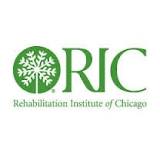Deficit Fields for Stroke Recovery
| Status: | Recruiting |
|---|---|
| Conditions: | Neurology |
| Therapuetic Areas: | Neurology |
| Healthy: | No |
| Age Range: | 18 - 100 |
| Updated: | 10/10/2018 |
| Start Date: | May 2013 |
| End Date: | June 2020 |
| Contact: | James L Patton, PhD |
| Email: | jameslpatton@gmail.com |
| Phone: | 312.238.1277 |
Error-enhanced Learning & Recovery in 2 & 3 Dimensions
This study investigates the potential of customized robotic and visual feedback interaction
to improve recovery of movements in stroke survivors. While therapists widely recognize that
customization is critical to recovery, little is understood about how take advantage of
statistical analysis tools to aid in the process of designing individualized training. Our
approach first creates a model of a person's own unique movement deficits, and then creates a
practice environment to correct these problems. Experiments will determine how the
deficit-field approach can improve (1) reaching accuracy, (2) range of motion, and (3)
activities of daily living. The findings will not only shed light on how to improve therapy
for stroke survivors, it will test hypotheses about fundamental processes of practice and
learning. This study will help us move closer to our long-term goal of clinically effective
treatments using interactive devices.
to improve recovery of movements in stroke survivors. While therapists widely recognize that
customization is critical to recovery, little is understood about how take advantage of
statistical analysis tools to aid in the process of designing individualized training. Our
approach first creates a model of a person's own unique movement deficits, and then creates a
practice environment to correct these problems. Experiments will determine how the
deficit-field approach can improve (1) reaching accuracy, (2) range of motion, and (3)
activities of daily living. The findings will not only shed light on how to improve therapy
for stroke survivors, it will test hypotheses about fundamental processes of practice and
learning. This study will help us move closer to our long-term goal of clinically effective
treatments using interactive devices.
Inclusion Criteria:
STROKE SURVIVORS:
- adult (age >18)
- Chronic stage stroke recovery (8+ months post)
- available medical records and radiographic information about lesion locations
- strokes caused by an ischemic infarct in the middle cerebral artery
- primary motor cortex involvement
- a Fugl-Meyer score (between 15-50) to evaluate arm motor impairment level
HEALTHY CONTROL PARTICIPANTS:
- adult (age >18)
- healthy individuals with no history of stroke or neural injury
Exclusion Criteria:
- bilateral paresis;
- severe sensory deficits in the limb
- severe spasticity (Modified Ashworth of 4) preventing movement
- aphasia, cognitive impairment or affective dysfunction that would influence the
ability to perform the experiment
- inability to provide an informed consent
- severe current medical problems
- diffuse/multiple lesion sites or multiple stroke events
- hemispatial neglect or visual field cut that would prevent subjects from seeing the
targets.
We found this trial at
1
site
345 E Superior St
Chicago, Illinois 60611
Chicago, Illinois 60611
(312) 238-1000

Phone: 312-238-1277
Rehabilitation Institute of Chicago The Rehabilitation Institute of Chicago (RIC) is an independent, 501(c)3, non-profit...
Click here to add this to my saved trials